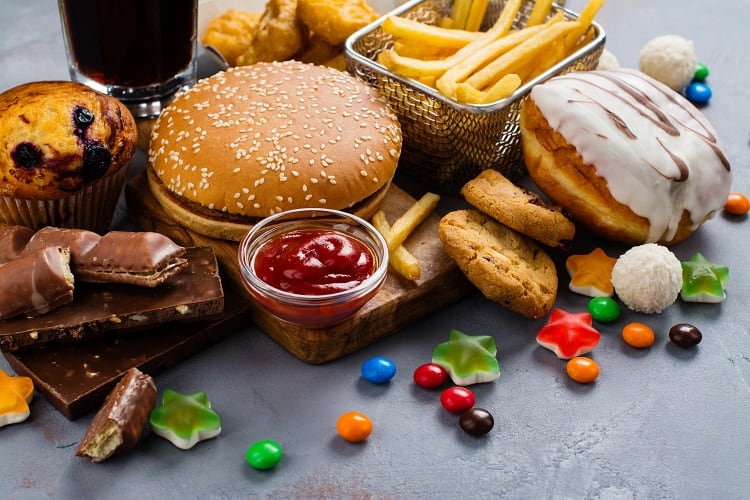Public Health England’s (PHE) plans to reduce salt, sugar and calorie content in food ignore consumers’ tastes and preferences and represent “the largest extension of state control over the British diet since rationing,” according to a report from the Institute of Economic Affairs (IEA), an influential London-based libertarian think tank.
Its Cooking for Bureaucrats report complains that the UK government’s reformulation policy treats the public as “infantile” and unable to make informed choices about its own health.
“Underlying reformulation is a principle of the most extreme condescension, which is that people - with all the nutritional information and regulations available - cannot choose to eat a sugary cereal or drink, and are not capable of making the trade-offs that this might involve,” it said.
Reformulation is expensive and bureaucratic
UK government reformulation policy has been expensive and bureaucratic, the IEA report stated. PHE has spent nearly a million pounds on food sales data, with the greatest spend (£423,452) in the financial year 2018/19, and since 2017, there have been 220 different active salt and sugar targets, it noted.
Proposals for new calorie reduction targets include a “baffling” range of food products, it said, which most people would not consider to be unhealthy, including: olive ciabatta, boxed salads, sushi, bao buns, vegetable crisps, protein balls, yoghurt covered raisins, croutons, braised cabbage, mushy peas, pesto, hollandaise sauce, quinoa, spelt and barley, guacamole, pease pudding, and prepared salads.
The report notes its objection to a number of “surreal” reformulation attempts, such as the recommendation that sweets should contain less than 50% sugar, “when boiled sweets are almost solely made up of sugar” or the request that fudge, made from sugar and butter/cream, should decrease the sugar content without increasing the fat content.
‘Reducing taste sabotages classic brands’
Recipes are being reformulated “by stealth”, leading to the taste of often iconic products changing without the public being informed, claimed the report. This puts classic brands at risk, it argued. “The demand that all products have their recipe changed, reducing sugar and/or calories by 20%, has the potential to undermine classic brands,” it wrote.
Reformulations to Coco Pops and Ribena, for example, provoked a negative public reaction on social media. The changes to Lucozade led to an 8.4% drop in sales, as consumers pointed out that the removal of sugar made it less effective as a sports energy drink. These reactions “suggests a failure to recognise the meaning and value of food for people”.
IEA makes the case that reformulations don’t take into account shoppers who want to consume sugary or salty items occasionally as a treat. After the reformulation of Ribena, for example, some customers reported that they would willingly pay a sugar tax in order to drink the full-sugar version.
“They may only drink it occasionally, but when they do they want it to be the real thing rather than what they see as a tasteless imitation,” the report pointed out. “They do not seem to share PHE’s view that making decisions about their diet is ‘burdensome’. Like those who continue to buy Coca-Cola (which has not been reformulated and is therefore subject to the sugar levy) these shoppers are prepared to pay more for what PHE sees as an inferior product.”
PHE recipes would reduce the fun and pleasure of eating out
PHE recommendations to cafes and restaurants have a similar effect on the OOH sector. For example, PHE suggests that fish and chip restaurants fry in vegetable oil rather than beef dripping, a change that would affect high-quality or gourmet fish and chips, where the dripping gives the crucial dimension of flavour. “It seems likely that food cooked according to PHE recipes would be dry, tasteless, and mean, reducing the fun and pleasure of eating out,” lamented the report.
The report also protested against the use of sweeteners in food reformulation. “Many people object to the ‘chemical’ edge of current sweeteners, which exists even for natural sweeteners such as stevia,” it noted. “Sweeteners also don’t have the same properties for cooking (for example, erythritol has a tendency to separate and cakes come out drier). Sugar provides more than a sweet taste: it is also important for the structure, viscosity and development of caramel flavours in food.”
Campaigners are ‘blind to taste’
The IEA accuses pro-reformulation campaigners of being “particularly blind to the question of taste, seeing the only legitimate obstacle to reformulation as a technical one.” For example, the campaign group Action on Sugar has said the different sugar quantities in ice creams illustrates the potential for reformulation. It noted that Asda smart price vanilla flavour ice cream had 46% less sugar than Waitrose Duchy vanilla ice cream. But the IEA report said: “This is not comparing like with like: one of these ice creams is an awful lot nicer than the other. Of course, taste is subjective, and people have different tastes - some may like the taste of sweeteners, for example, while others may not. This is why it is better that the taste of food is left to public choice rather than bureaucratic injunction.”
Reducing portion size but not the price
Reformulation, meanwhile, can reduce portion sizes and lead to an increase in price. “One of the easiest ways to reduce sugar or calories per portion is to reduce the portion size, an approach often encouraged by PHE. However, prices rarely reduce in line with size, meaning customers pay more to purchase the original quantity of food or drink,” wrote the IEA.
What’s more, reformulation can also have a negative impact on children, it said. “PHE’s advice to eat low-fat and low-milk foods could be beneficial for inactive adults but for active and growing children, fatty foods and dairy are essential for brain and bone development. Children are also at risk of developing an unhealthy relationship with food – including eating disorders – if there is a fixation on strict calorie guidelines.”
Food reformulation by stealth pleases PHE, not consumers
The effect of the policy of reformulation will be to detach the food market from the tastes, preferences and nutritional goals of consumers, the report concluded. “The danger is that food products will be designed, not primarily to please the public, but to meet the arbitrary and often illogical targets that are set by health bureaucrats. The scheme is likely to result in a decline in taste, value for money and possibly also in nutritional quality,” it said.
Commenting on the report, author Josie Appleton said: “These new food reformulation plans go way beyond even the existing Orwellian limits. There is a shocking lack of evidence behind them, it seems the main motivation for the changes is a belief the public are too infantile to make informed choices about their own diet so ‘improvements’ must be made for them.”





